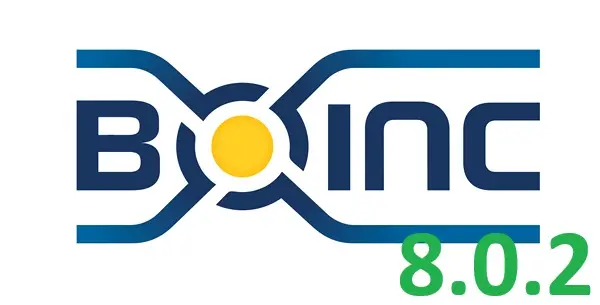It's all fun and games until the EU decides to start trying to regulate lemmy and we opened the door to it because we wanted to dunk on our political opponents. Let websites make their own content (speech) choices, let users make their choices on speech and platform as well.
A. I wouldn't because that implies by being around longer I know more or am more right about some things than young people. I've accumulated knowledge, but that doesn't mean anybody should listen to what I have to say or that I'm wiser. There are certainly times that is true, but it's also true that we have a lot to learn from them and we should listen to them.
B.
- Health is your greatest wealth.
- Love is the answer and all that matters. Be good to others
- Stay humble
- Stack sats
There are no protections for me if I unknowingly let some stranger use me as a host or router for CP or some pedo shit. It’s not a risk I’m willing to take. There need to be legal protections in place, like there are for ISPs.
There are, at least in the US. That's why running a Tor node is legal and so is a coffee-shop sharing their wifi to customers. They are not legally liable for actions of users, they are just routers.
Moving value around isn't free. It takes money and energy and human time. Bitcoin is more efficient than the traditional banking system in many ways. You just don't see headlines about how much energy is used by the stock market or remittance services because it's not good clickbait. "BITCOIN IS BOILING THE OCEANS" however is novel and sounds good. But it's just clickbait.
Bitcoin uses <1% of global energy, mostly from renewables, at off-peak times since it's the cheapest energy. Miners have to use the cheapest energy (as mining is extremely competitive and low margin), so they don't compete with regular energy users. What they do is even out demand curves, which ultimately incentivizes the addition of renewables to the grid by ensuring there will always be a buyer for the electricity. This keeps prices down for regular users as well, since they aren't paying for un-used capacity. Proof-of-work is essential to Bitcoin's security, other schemes have been attempted but do not stay decentralized as well, are less secure, and tend to lead to concentration of wealth.
That's all to secure "main chain", but a single main-chain transaction can open a lightning channel which can contain billions of transactions, none of which need to be mined, all of which settle in under a second for next to nothing in fees. Main chain "secures" these transactions but doesn't need to actually process them, which means lightning transactions take about as much energy as sending an e-mail.
If you're interested in learning more about Bitcoin's energy use see https://endthefud.org/ or for a more friendly and less academic site see http://bitcoin.rocks
Each network has its own way of addressing this with pros and cons. Personally, idc, I don't mind being a "router" in exchange for other computers "routing" to me. I don't mind the idea of sharing my internet connection via wifi with my neighborhood, it should be a resource for all.
The cost of having open communication networks or free speech or privacy or any liberties is that people may use those liberties to do bad things, but I'd rather live in a world where we have liberties that sometimes get abused than in a world without liberties where those who control things get basically unlimited abuse of the same liberties we are not afforded.
Oh. Well, to your credit, most of crypto is outright scams. But Bitcoin is not "crypto". Bitcoin has a transparent supply and issuance schedule and has continued to grow for 15 years in a row whether you are measuring transaction volume, number of nodes, market cap, etc. Just because it hasn't been in the news as much doesn't mean stuff isn't happening. It's not controlled by any entity, board, corporation, or government, it's just a money and payment system that enables you to send money across the globe in under a second for pennies in fees (thanks to the recent Lightning upgrades) with a cell phone and a halfway reliable internet connection. It never takes bank holidays and has operated 24/7 without a single hour of downtime or hack. Its market cap is bigger than Sweden's GDP, it moves billions of dollars of value every year.
25% of Americans own crypto of some kind, most have a Bitcoin-compatible wallet on their phone (Venmo, Cash App, Strike, Paypal). The SEC approved the first Bitcoin ETF this year. Big banks are investing in it because they see use and potential. But if you think it's a scam or a bubble or whatever maybe on year 16 you'll finally be right!
Not a tankie fam, check my post history if you doubt. Might have been nice to do before making an accusation that somebody is a bot or a tankie. I am pro free trade, mostly post about Bitcoin and privacy apps, half the things I post about would get me black-bagged in CCP-land.
Let's go 🔥🔥🔥
Are you lost friend? It's this year
If you want an easy onboarding solution for nostr check out https://damus.io/
The cool thing is if you don't like the first app you try, there's dozens of others, and your data moves across all of them seamlessly. I started on iris and now I'm on nostrudel and I'll probably try out a few more over the next year before I really settle in to the best one for me.
If you have questions, check out !nostr@lemmy.world or use the #asknostr tag once you have your account setup, people are very helpful there!






Pretty well established case law at this point. If it weren't, you'd see Tor relay operators, small ISPs, etc being hauled into court constantly.